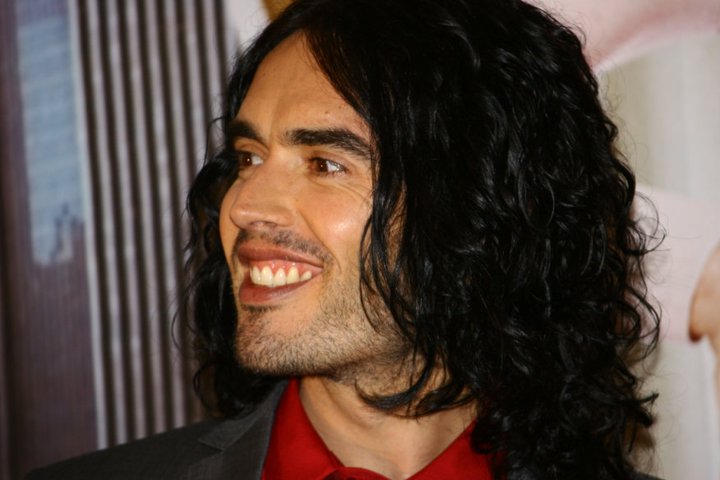Recently, unpredictable comedian Russell Brand sat down with BBC icon Jeremy Paxman to discuss Brand’s stint as editor-in-chief of the liberal British magazine The New Statesman and his 4,500-word editorial/manifesto on revolution. Brand, known for his lewd and disarming sense of humor, was eloquent and passionate speaking about the failures of democracy. Paxman, keen on trivializing Brand’s political opinion, was stunned as Brand called for a revolution to end a broken British-American political system that serves only the privileged and destroys the natural environment. Brand voiced a growing feeling among British-American youth, who—especially after the US government shutdown—“feel disenfranchised, disenchanted, disengaged, and, most important, disinterested in the idea that politics can change the world.” Brand argued that voting is a futile exercise, and only perpetuates a political paradigm that sacrifices the planet and the ‘99%’ in order to shelter the economic prosperity of the ‘1%’.
Brand’s political commentary was startling, and I often found myself nodding in agreement—perhaps due to Brand’s verbal magnetism rather than the merit of his arguments. So were Brand’s statements accurate? And is voting “tacit complicity” in the current system? Below, I will run through a fact check of a few of Brand’s points before debating whether Brand’s advice and vision for the future is productive or irresponsible.
Fact check:
…[the poor]don’t feel like they want to engage with the current political system because they see that it doesn’t work for them, they see that it makes no difference, they see that they’re not served…(2:45)
Brand’s message is correct: the poor are, due to personal and societal factors, disenfranchised. According to the US Census Bureau, in the 2008 presidential election, under 42% of adults with incomes less than $15,000 voted. Voter turnout steadily increased in proportion to income to more than 78% of adults earning more than $150,000. What causes this phenomenon among America’s poor? A multitude of factors: decreased civic engagement, workday voting, felony disenfranchisement, voter identification rules and the belief that voting will not bring instant change to the system. Unfortunately, low voter participation in protest of a broken democratic system only leads to greater marginalization. The poor don’t vote and, in turn, politicians make little effort to appeal to the underprivileged majority. While the privileged minority thrives, the poor only grow more pessimistic. As the old adage goes, ‘the rich get richer and the poor get poorer’.
…300 Americans have the same amount of wealth as their 85 million poorest Americans… (4:05)
This figure goes uncited in Brand’s article and video interview and is difficult to verify when compared alongside federal census data. However, Brand’s observation of a massive income gap in America is accurate. In fact, it is worse than Brand states. The richest 400 Americans have the same amount of wealth as the poorest 157 million Americans (50% of total population). And America is not alone. Almost universally, the gap between the ‘have’ and the ‘have-nots’ is widening. Some may argue that modest income inequality is a healthy symptom of capitalism, but a system that celebrates billionaires as 46.5 million Americans live below the poverty line is clearly broken.
No one is doing anything about tax havens… (9:04)
Here Brand is mistaken, as politicians around the world are clamping down on tax evasion in the wake of the ‘Great Recession’. British politicians have launched a campaign against tax havens in the Commonwealth, such as Bermuda and the Isle of Man. American and German politicians have publicly criticized Irish banks for allowing companies like Facebook and Google to escape millions in taxes, and the US Justice Department has filed lawsuits against Swiss banks that knowingly shelter the money of US citizens and corporations. Whether a moral awakening or domestic financial and political pressure inspired this recent initiative is immaterial, as politicians are taking a stand against tax havens.
…stop voting, stop pretending. Wake up. Be in reality now—time to be in reality now. Why vote? We know it’s not going to make any difference. We know that already…” (5:50)
The question of whether “my vote counts” appears every election season; journalists write articles about the statistical value of each vote. For instance, statements like “your vote has a 1:10,000,000 chance of determining who is elected president” deter the average American from casting a ballot. One may be left thinking that their vote will be inconsequential in choosing elected officials or changing the current political paradigm. Yes, the political system might be broken, but not participating in the electoral system is an ineffective and irresponsible method of protest. This fact impels me to criticize Brand’s argument below.
Debate:
I have three rebuttals to the idea that “voting is tacit complicity” and “voting makes no difference.” First, if Brand’s vision were to become reality, then the electoral system would come to a standstill. However, a more likely scenario is one in which those moved by Brand’s manifesto abstain from voting and those content with the status quo continue to vote. Thus, the influence of those who Brand despises is inflated. As David Foster Wallace wrote: “In reality, there is no such thing as not voting: you either vote by voting, or you vote by staying home and tacitly doubling the value of some Diehard’s vote.” How can those hoping for change endorse an emboldening of the diehards’ policies? Second, voting can have dramatic effects on policy at the local level. State propositions and local laws can determine whether contentious policies, such as the status of undocumented California residents or Colorado’s policy on marijuana, can come to pass. Third, a democracy, by definition, operates via civic participation. One could argue that a democracy that privileges certain socioeconomic groups over others is not a true democracy, but one should argue that a democracy absent of voting is no democracy at all. Rather, such a state becomes an autonomous government that has fully robbed the people of their sovereignty.
Brand argues for revolution—a cultural awakening acknowledging the ill effects of capitalist democracies and favoring a socialist utopia that will equality redistribute national wealth and eliminate profit. The issue with Brand’s vision, as Paxman notes, is that a governmental body is required to redistribute national wealth. And a government of unelected officials in complete command of national wealth – without accountability – is a terrifying prospect. One only needs to look at the Soviet, Chinese, Cuban, Laotian models, to name a few, to see that a government’s adoption of socialism is easier said than done.
Brand cites Scottish comedian Billy Connolly as inspiration: “the desire to be a politician should bar you for life from ever being one.” I disagree. The desire to change, and hopefully better, the community through civil service is honorable, not incriminating. Closing the political door to a future generation of leaders who may have undergone Brand’s “cultural awakening” because of the failures of current leaders is downright irresponsible. The current British-American political paradigm is wrought with problems, but socio-political activism is not one of them. Of all people, Brand should recognize this reality.







